Dagstuhl-Seminar 17342
SLEBOK: The Software Language Engineering Body of Knowledge
( 20. Aug – 25. Aug, 2017 )
Permalink
Organisatoren
- Benoit Combemale (IRISA - Rennes, FR)
- Ralf Lämmel (Universität Koblenz-Landau, DE)
- Eric Van Wyk (University of Minnesota - Minneapolis, US)
Kontakt
- Andreas Dolzmann (für wissenschaftliche Fragen)
- Simone Schilke (für administrative Fragen)
Over the last 10 years, the field of Software Language Engineering (SLE) has emerged based on a strong motivation to connect and integrate different research disciplines such as compiler construction, reverse engineering, software transformation, model-driven engineering, and ontologies. This Dagstuhl Seminar strives for directly promoting the further integration of said communities with the clear objective of assembling a Body of Knowledge on SLE (SLEBoK). The BoK features artefacts, definitions, methods, techniques, best practices, open challenges, case studies, teaching material, and other components that will afterwards help students, researchers, teachers, and practitioners to learn from, to better leverage, to better contribute to, and to better disseminate the intellectual contributions and practical tools and techniques coming from the SLE field.
The following questions and issues provide the guiding principles for the seminar. The first two categories reflect on the result of the past decade and the last category looks forward to the next decade; these categories will also be addressed by the seminar attendees in breakout groups.
- Conceptual model of the SLE field: What is a comprehensive and objective (validated) classification of SLE approaches? What are appropriate dimensions of such a classification? How to otherwise ontologically organize software language engineering, e.g., in terms of application areas, relationships to other software engineering areas, and fundamental SLE concepts?
- Curriculum contributions by the SLE field: What is the suite of formal notions and engineering methods, that one could want to see introduced in a computer science curriculum so that SLE is properly represented? What is a reference curriculum for SLE? What is an appropriate combination of timeless foundations and relevant (current) applications and technologies? How to contribute to or otherwise support a computer science curriculum?
- Open SLE challenges: What are the open challenges in SLE and how to lay out a larger research agenda that the community can refer to in the next 10 years? How to connect to important developments such as AI and IoT? How to measure the relevance of the research priorities proposed?
With the SLE field approximately 10 years old, there is a strong desire by the community to analyse the situation and to move to the next level of maturity. This Dagstuhl Seminar promises to be the ideal format for such a critical analysis and further development of SLE's foundation. As a result of the work on the above three pillars, the seminar attendees will publish or initiate and maintain the SLEBOK ontology, the SLE curriculum, and the aforementioned research agenda.
 Benoit Combemale, Ralf Lämmel, and Eric Van Wyk
Benoit Combemale, Ralf Lämmel, and Eric Van Wyk
- Mathieu Acher (University of Rennes, FR) [dblp]
- Anya Helene Bagge (University of Bergen, NO) [dblp]
- Walter Cazzola (University of Milan, IT) [dblp]
- Andrei Chis (feenk - Wabern, CH) [dblp]
- Benoit Combemale (IRISA - Rennes, FR) [dblp]
- Thomas Degueule (CWI - Amsterdam, NL) [dblp]
- Sebastian Erdweg (TU Delft, NL) [dblp]
- Johannes Härtel (Universität Koblenz-Landau, DE) [dblp]
- Görel Hedin (Lund University, SE) [dblp]
- Marcel Heinz (Universität Koblenz-Landau, DE) [dblp]
- Ralf Lämmel (Universität Koblenz-Landau, DE) [dblp]
- Manuel Leduc (IRISA - Rennes, FR) [dblp]
- Tanja Mayerhofer (TU Wien, AT) [dblp]
- Peter D. Mosses (TU Delft, NL) [dblp]
- Gunter Mussbacher (McGill University - Montreal, CA) [dblp]
- Oscar M. Nierstrasz (Universität Bern, CH) [dblp]
- Anthony Sloane (Macquarie University - Sydney, AU) [dblp]
- Friedrich Steimann (Fernuniversität in Hagen, DE) [dblp]
- Eugene Syriani (University of Montréal, CA) [dblp]
- Tijs van der Storm (CWI - Amsterdam, NL) [dblp]
- Eric Van Wyk (University of Minnesota - Minneapolis, US) [dblp]
- Hans Vangheluwe (University of Antwerp, BE) [dblp]
- Jurgen J. Vinju (CWI - Amsterdam, NL) [dblp]
- Markus Völter (Völter Ingenieurbüro - Stuttgart, DE) [dblp]
- Vadim Zaytsev (RainCode - Brussels, BE) [dblp]
Klassifikation
- modelling / simulation
- programming languages / compiler
- software engineering
Schlagworte
- Software languages
- Body of knowledge
- Language design and implementation
- Metaprogramming

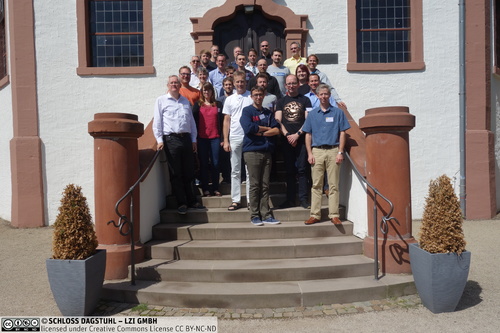
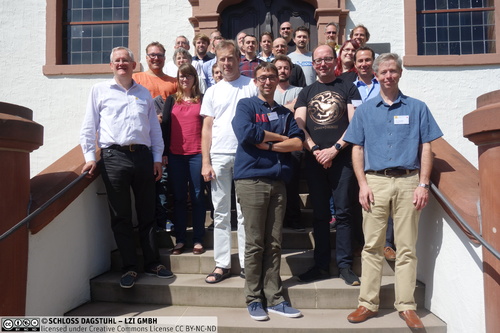
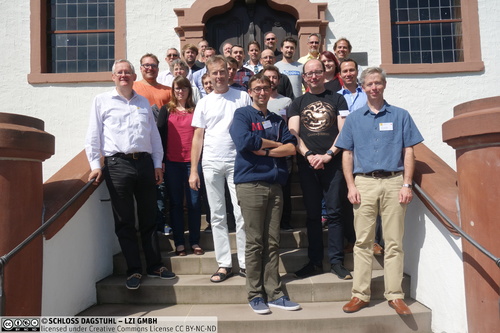
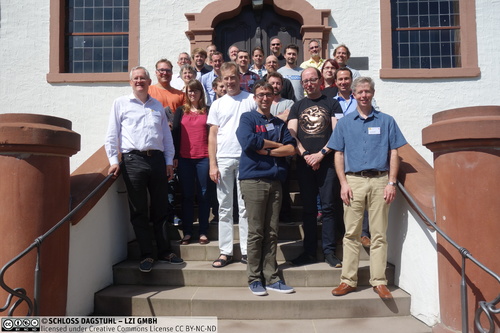
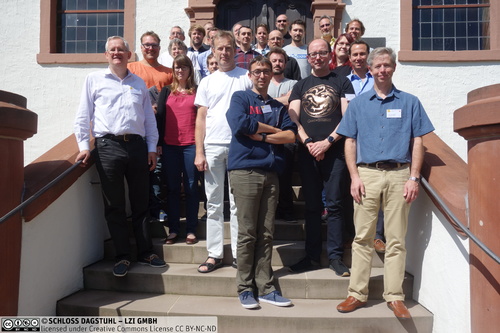
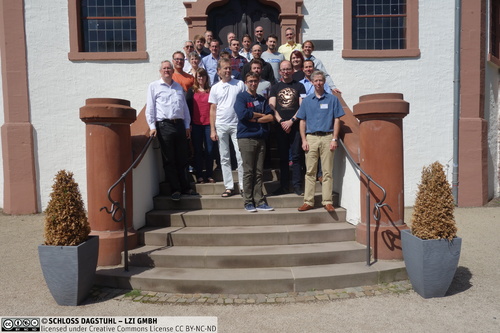
 Creative Commons BY 3.0 DE
Creative Commons BY 3.0 DE
